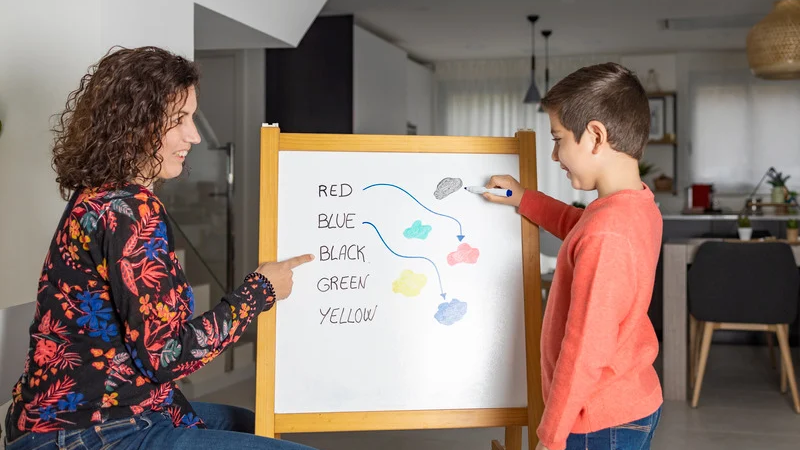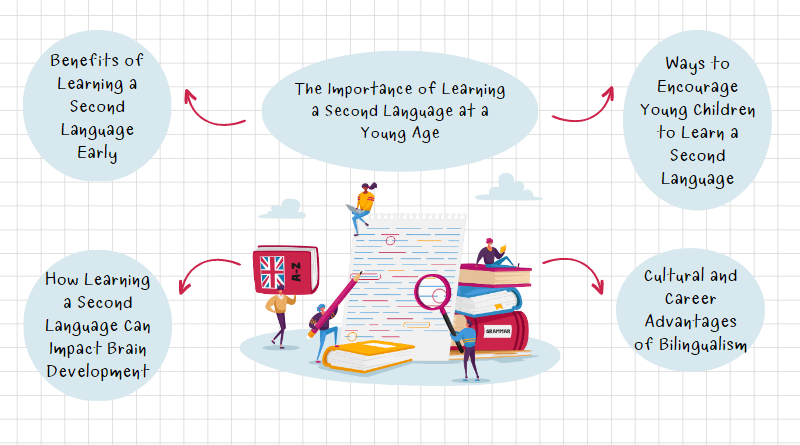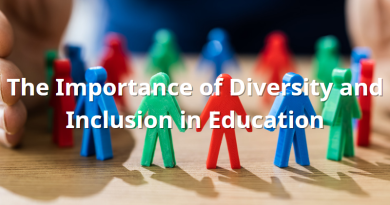The Importance of Learning a Second Language at a Young Age
In this increasingly interconnected world, the significance of “The Importance of Learning a Second Language at a Young Age” can’t be overstated. The ability to communicate in more than one language offers a valuable edge across diverse sectors. However, the gains are not just practical; learning a second language early can also bestow children with numerous cognitive, cultural, and societal benefits. In this discourse, we will unfold the vital role of second language acquisition in early childhood, and the resulting dividends in children’s growth and future achievements.
Upsides of Early Second Language Acquisition
Starting the journey of learning a second language during the early years can reward children with numerous benefits. Here are the prime advantages:
Enhanced Cognitive Skills: Studies suggest that early second language learning can bolster cognitive development, encompassing augmented memory, problem-solving abilities, and critical thinking prowess. Bilingual kids usually excel in tasks demanding cognitive flexibility and executive function.
Broadened Cultural Perception: Learning a second language fosters an understanding and appreciation for diverse cultures and lifestyles, fostering empathy and open-mindedness.
Boosted Career Prospects: The global economy today places high value on multilingualism, providing children a competitive edge in later professional life.
Improved Academic Performance: Bilingual children often outperform their monolingual counterparts in other academic areas like mathematics, science, and reading.
Superior Communication Skills: Mastering a second language enhances both verbal and non-verbal communication, fostering confidence and expressiveness.

The Brain Development Impact of Second Language Learning
Second language learning has considerable effects on brain development. Here’s how:
Gray Matter Increment: Regions related to cognitive control and language processing show increased gray matter.
Cognitive Abilities Enhancement: Second language learning boosts memory, attention, and problem-solving skills.
Improved Executive Function: This refers to goal-directed mental processes like planning, self-control, and organizing. Second language acquisition enhances these in both adults and children.
Increased Neural Plasticity: The brain’s adaptability to new experiences is termed neural plasticity, which is increased through second language learning.
Delayed Cognitive Decline: Second language learners tend to experience delayed onset of cognitive decline, reducing risks of dementia and similar disorders.
Encouraging Youngsters to Learn a Second Language
Promoting second language learning in young children can be rewarding for both parents and children. Here are some strategies:
Begin Early: Introduce a second language as soon as possible for better language and cognitive skills.
Play-Based Activities: Incorporate language learning into everyday playful activities like singing and games.
Visual Aids: Utilize aids like flashcards, posters, and books to introduce new vocabulary and concepts.
Language at Home: If you or any family member is fluent in the second language, try using it at home for more exposure.
Language Buddy: Encourage your child to interact in the second language with others learning the same language.
Technology: Various language learning apps and online resources make language learning engaging for young children.
Patience and Consistency: Learning a second language demands time and effort. Be patient and consistent, and celebrate each step of progress.

Cultural and Career Perks of Bilingualism
Bilingualism comes with a myriad of cultural and career benefits:
Cultural Perks:
Enhanced cultural awareness: Understanding and appreciation of other cultures deepen with bilingualism.
Expanded social connections: Bilingualism enables one to connect with diverse cultural backgrounds.
Increased empathy: Seeing the world from different perspectives develops understanding and empathy.
Improved travel experiences: Bilingualism enhances travel experiences by facilitating communication with locals.
Career Perks:
Broadened job opportunities: Bilingualism expands job prospects, particularly in international business, government, education, and translation.
Higher earnings potential: Bilingual individuals often earn higher than their monolingual counterparts.
Increased competitiveness: Bilingualism demonstrates effective communication with diverse groups.
Global marketability: Bilingualism enhances global marketability, with companies requiring multilingual employees for international operations.
Navigating Challenges of Early Second Language Learning
While rewarding, early second language learning poses some challenges. Here’s how to overcome them:
Motivation Lacking: Make learning fun with play-based activities and games to motivate young learners.
Limited Exposure: Look for interaction opportunities with native speakers outside the classroom.
Vocabulary Retention: Use visual aids like flashcards and videos to reinforce vocabulary.
Pronunciation Difficulties: Offer plenty of practice opportunities and seek feedback from native speakers.
Grammar Challenges: Use books, songs, and games to reinforce grammar concepts in an enjoyable way.
Frustration with Slow Progress: Celebrate small successes and offer encouragement and positive reinforcement.

To conclude, early second language learning offers a plethora of benefits, both tangible and intangible. From enriched cognitive abilities to amplified cultural perception and communication skills, the dividends are multifold and diverse. Moreover, early language learning can pave the way for future success by opening new career opportunities and helping children thrive in an increasingly globalized world. By investing in early language learning, parents and educators can equip children with a valuable lifelong skill.




